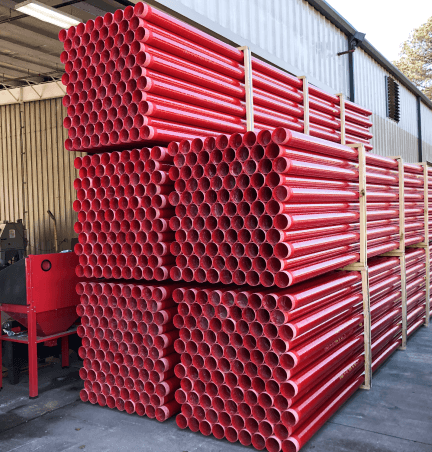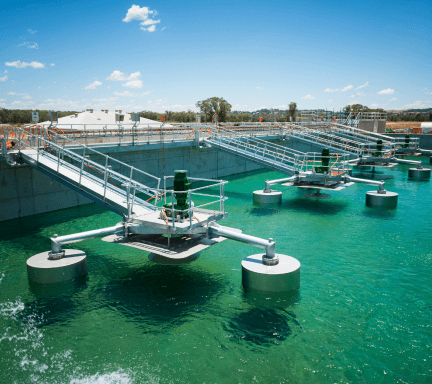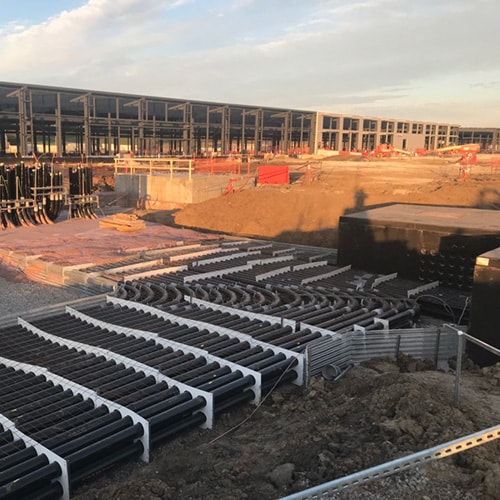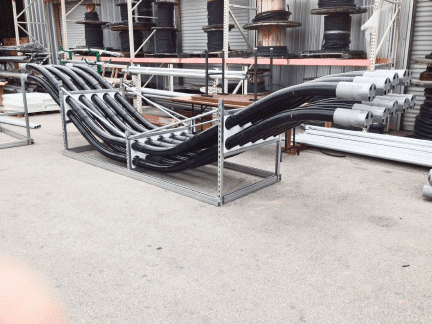Electrical conduit is a raceway used to house and protect electrical wires within a building or structure. There are many types of conduit – metallic, nonmetallic, rigid, flexible and PVC-coated – each with unique properties and use cases. Common applications include bridges, tunnels, subways, data centers, utilities, wastewater treatment centers and chemical plants.

When determining the best electrical conduit for an industrial construction project there are a variety of factors to consider. The environmental factors of your application will heavily influence which conduit type is required. Questions to consider include:
- Will the conduit be placed indoor or outdoor, and what chemical or natural elements might it be exposed to in that location?
- Is the environment wet or caustic? If so, a corrosion-resistant conduit will be required.
- Do any unique installation challenges exist? For example, installations over or in water may require a lighter weight conduit to be used.
Additional considerations include cost and product availability. Fiberglass (RTRC) conduit is manufactured in the US and available from Champion Fiberglass® with short lead times, while other conduit types such as PVC have experienced shortages and shipping delays in recent years.
To gain a better understanding of how material and installation costs of various conduit types compare, consider using the Champion Fiberglass suite of electrical conduit calculators to generate comparable estimates quickly.
Why Champion Fiberglass?
Champion Fiberglass helps engineers and project managers Do MoreⓇ by supplying durable, lightweight conduit quickly. The potential cost savings on both materials and labor when specifying RTRC (fiberglass conduit) vs. PVC SCH 40, PVC SCH 80, GRC, aluminum or stainless steel can be huge. Check out just how much you could save on your next project with the Champion Fiberglass Electrical Conduit Calculator.













